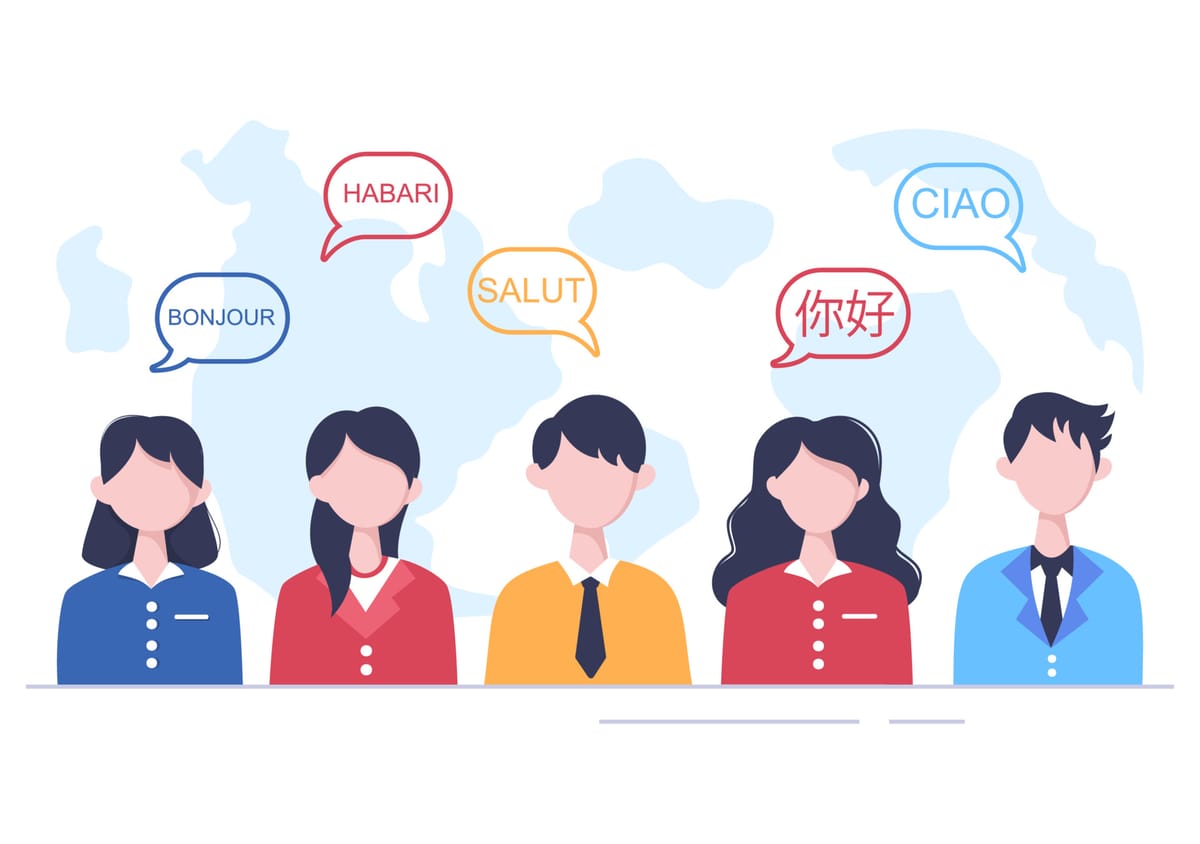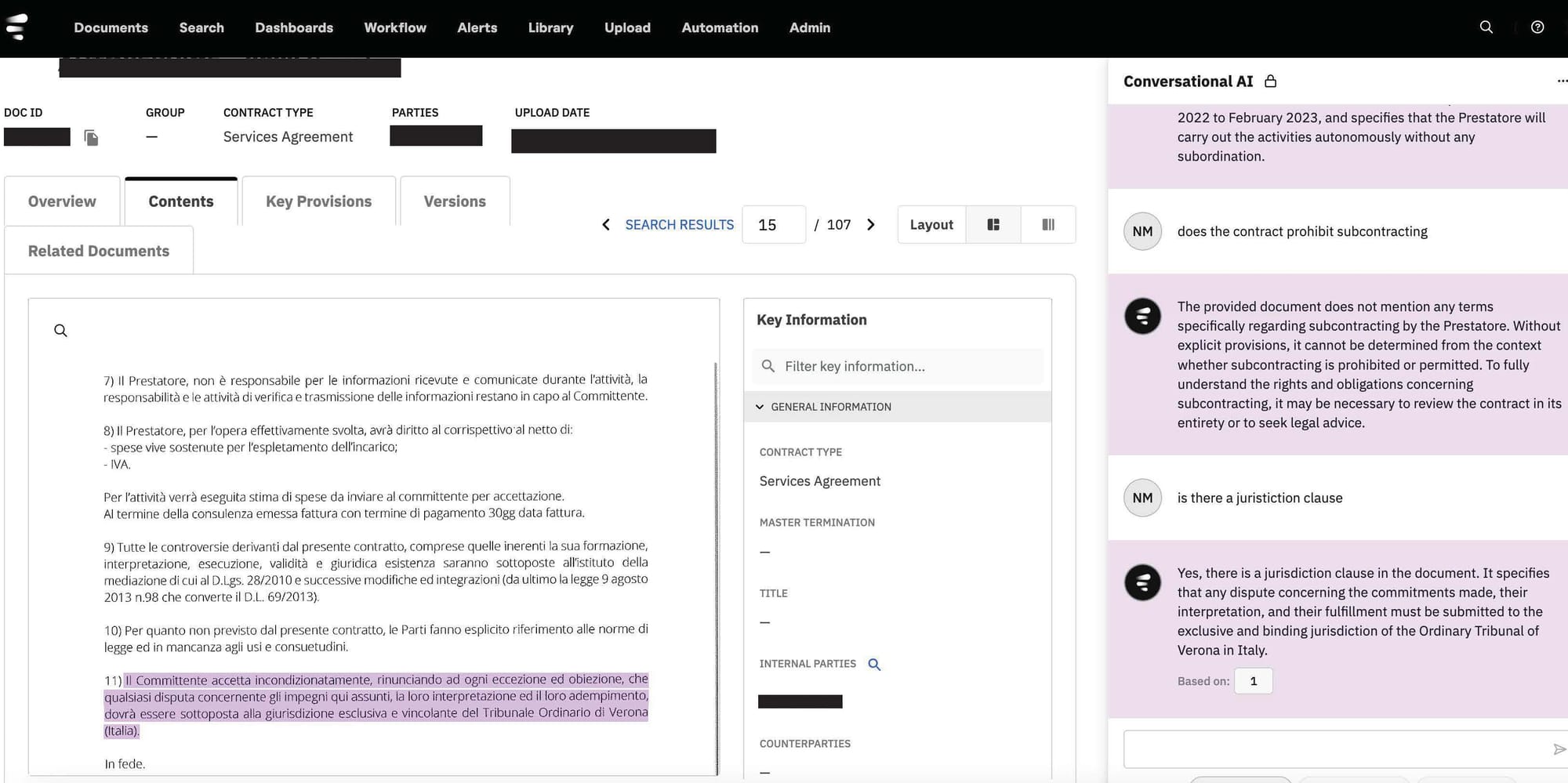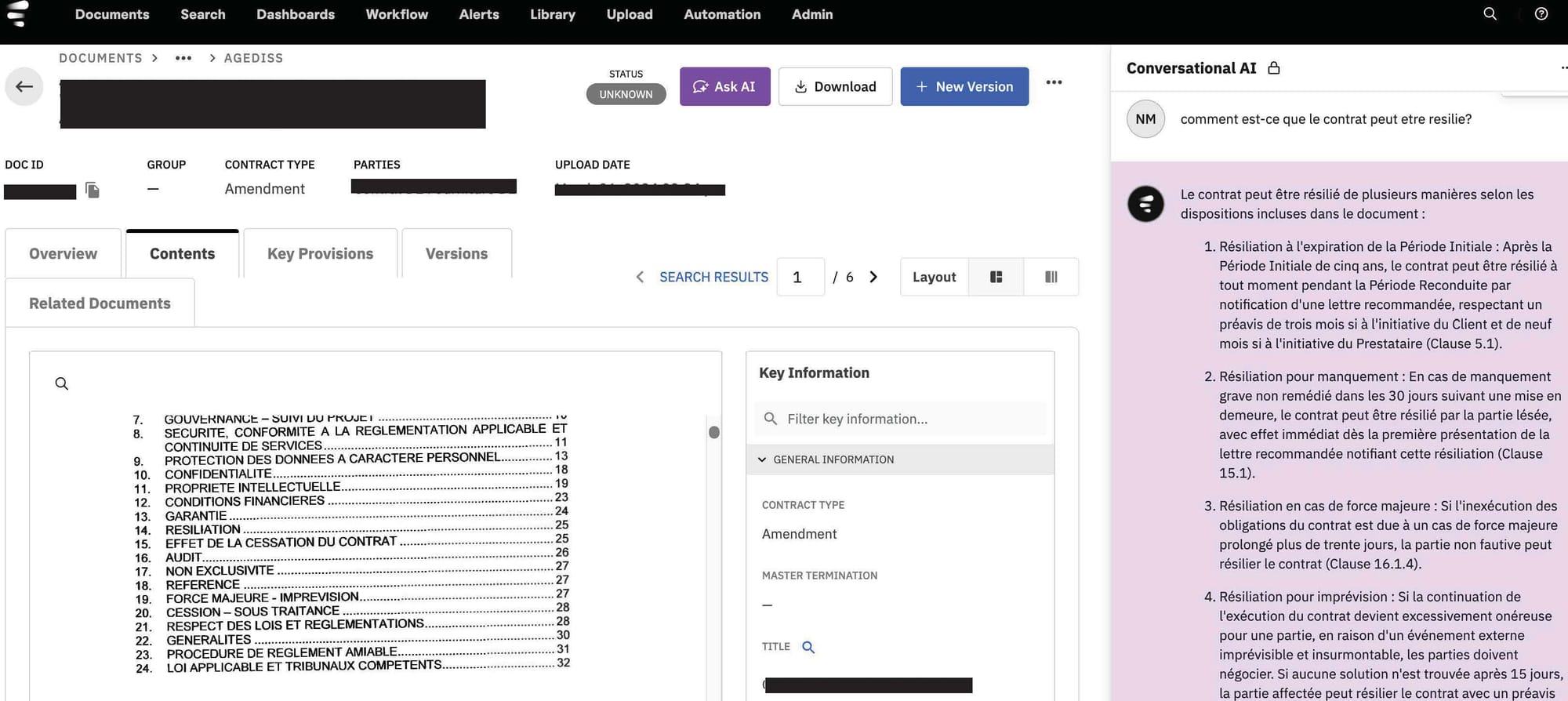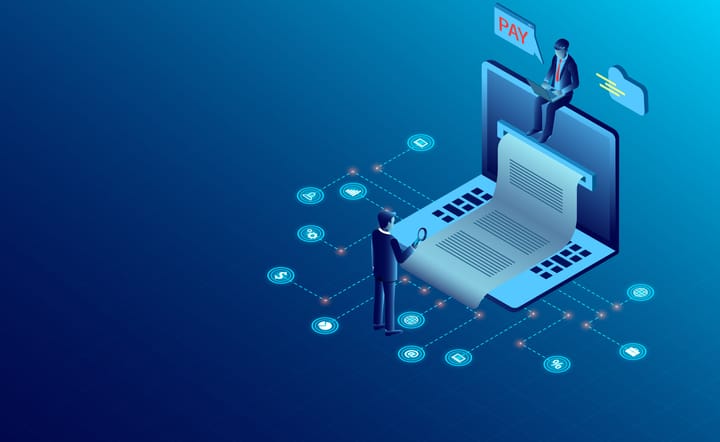When did Evisort learn French?
Evisort's conversational AI has multilingual capabilities allowing legal professionals to ask questions in English about agreements in other languages.

Yesterday began with a pleasant surprise. One of our very talented paralegals messaged me about Evisort. This was surprising as the paralegal in question, who's part of our M&A team, had been reluctant to adopt Evisort. The paralegal had started using Evisort before its conversational AI was enabled and she was comparing Evisort to CoCounsel by Casetext which allowed her to ask questions about documents and get nice rounded and accurate answers. I believe the reluctance to Evisort was linked to her preferring an interactive conversational AI chatbot as opposed to using Evisort's extensive search operators to extract the exact information she was looking for in contract. Driving adoption is hard and for whatever reason the paralegal wasn't sold on Evisort. So, imagine my surprise when the following messages come in:
DID YOU KNOW MY BEST FRIEND READS FRENCH?
MY BEST FRIEND BEING EVISORT AI
No I didn't know! What is she talking about? When we started looking at CLMs we cared about multilingual capability because we operate across Europe. But we had always been told by Evisort reps that the system really only works on English language agreements and that there was limited multilingual capability. Well I knew that wasn't true, you could always search non-English documents for specific words using Evisort's amazing search operators and the system didn't care if I was searching for English words or French words it just matched what you were looking for against the OCRed text of the different documents.

This was great, but it required a certain foreign language skillset in order to leverage the search functionality. But because it was effective for searching non-English contracts we uploaded French, German, Italian and some Dutch agreements to Evisort to leverage the search ability.
But this clearly wasn't what our paralegal was talking about. She'd clearly discovered something else that had made her day a lot easier. Apparently, Evisort's native conversational AI was able to answer questions posed in English about non-English documents! This potentially allows someone who doesn't speak the language the agreement is written in to ask questions about an agreement and get answers back in their own language. Here's an example of questions being asked in English about an Italian agreement:

No one had told me Evisort could do this and I never thought to try. To be honest, Evisort has rolled out so many additional features recently that it's a challenge to keep up and understand a) how well they work; and b) how we can leverage them to make our team more efficient and productive. Today our M&A team was looking at a deal in France and had discovered a new way to use Evisort that made their job a lot easier. This was really fantastic news. But what was even more gratifying was listening to the paralegal report that she had been using Evisort's conversational AI in due diligence for the last 2 weeks and that it had been extremely accurate. For this paralegal, who previously looked at Evisort with something close to disdain, to now be singing its praises was so gratifying. The tool that I had fought, pitched and pleaded for was making our team more effective and adding value!
I'm still coming to terms with how this will change our workflow. However it's clear to me that this will make us less reliant on non-English language speaking external counsel to review and understand non-English contracts.
But let's take a step back, what does this mean for Evisort's conversational AI? Does it speak and understand any language? Can I interact with the conversational AI in another language? Does it understand French?

I guess it does! I can ask questions in French and it responds in french. That's more than cool and I know our French, German, Dutch and Italian users will love being able to interact with the conversational AI in their mother tongue! Up until now, I've had to explain that Evisort had limited mulit-language capabilities, but that they should adopt the system anyway. Well i guess that's no longer true - it has a multi-lingual enabled chatbot.
I have no idea how an LLM can fluidly move in and out of different languages so seamlessly. What I do know, is that I can now use Evisort to help me to understand non-English contracts and our users in other jurisdictions are going to love this capability which is going to make adoption much more attractive for our users who's first language is not English.
AI adoption has been one of our company's objectives. Earlier today, I was actually on a company-wide call on how to use and leverage AI. The call opened up for questions and someone asked about using AI to interpret contracts. Next thing I knew, a screen was shared and the AI expert was uploading a contract into ChatGPT and asking it different questions. All I wanted to do was take over the screen share and show how much better adapted Evisort user interface is for querying contracts. In particular, the "based on" link underneath the conversational AI answer that allows the user to quickly and easily navigate to the part of the contract that the AI used to base its answer on which allows the user to quickly validate the response is phenomenal. But, I held my tongue and watched the AI expert proceed to show how you can ask ChatGPT to identify 10 red flags in the contract. At this point, I couldn't help myself and needed to interject that when asking about the red flags it would be helpful to ask the AI what are ten red flags that the Customer should be aware of. Because when were negotiating contracts, we are always representing a particular party and we want to understand from that party's perspective what its risks are. We are less concerned about the risks to the other party - that's the other lawyer job. All to say that it was interesting to see how an "AI Expert" was prone to misstep when using AI in a subject domain that he had limited familiarity with. I think there is real danger in non-legal professionals using ChatGPT or other AI to interpret agreements as this demonstration illustrated.
I thought the day was done and that I could finally go to bed in peace, but that was not to be. Kevin Cohn needed to have his say on how AI was going to impact the legal field. According to Kevin:
I think Kevin's right. A lawyer or paralegal who understands how to use AI is going to bring their organization or clients considerably more value. And I guess it follows that we should be be giving more cash to those legal professionals who can effectively leverage AI over those that cannot. There is no doubt in my mind, that a legal professional who can navigate and effectively leverage different AI tools is going to be 2x, 3x, maybe even 6x more effective than a legal professional who can't.



Comments ()